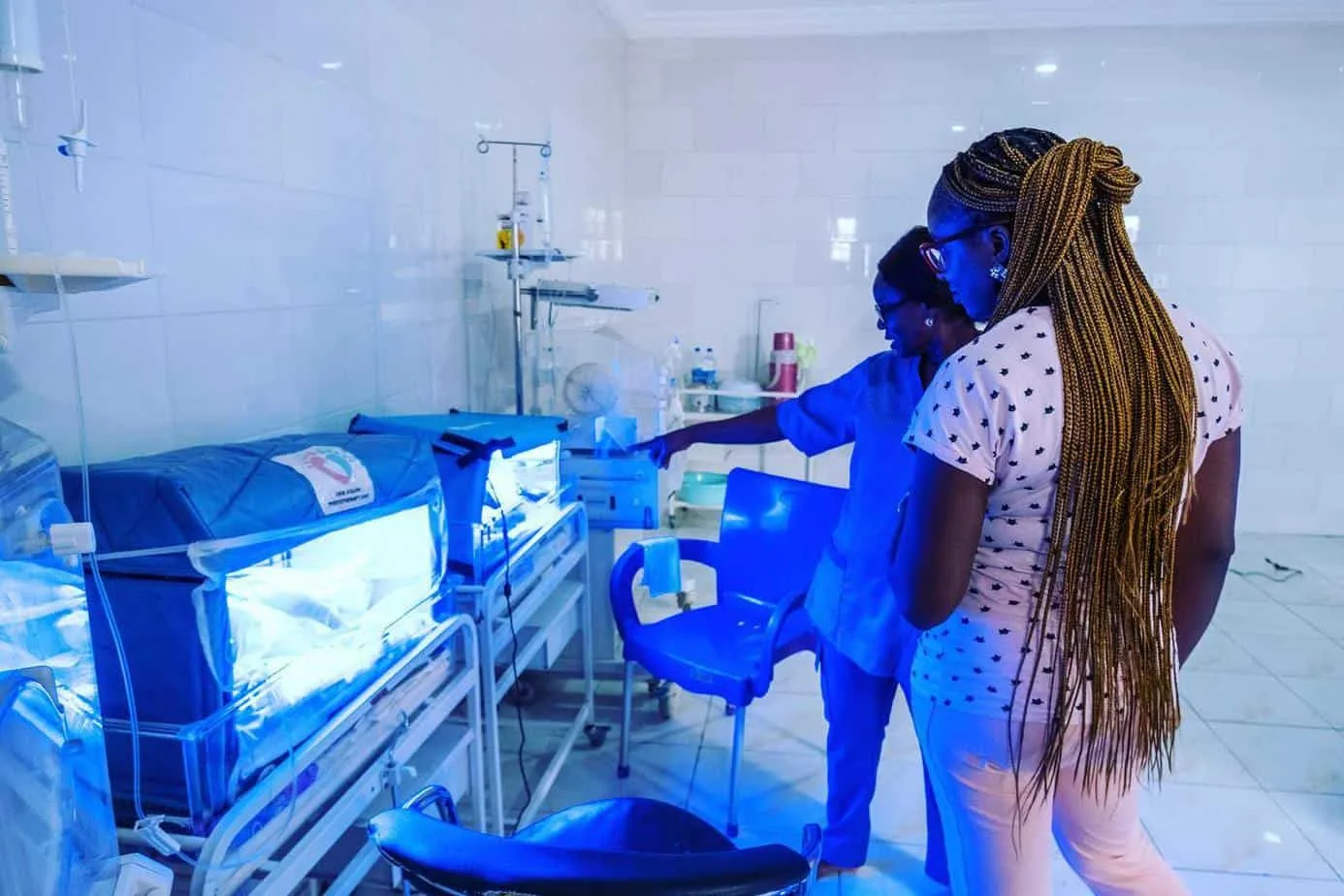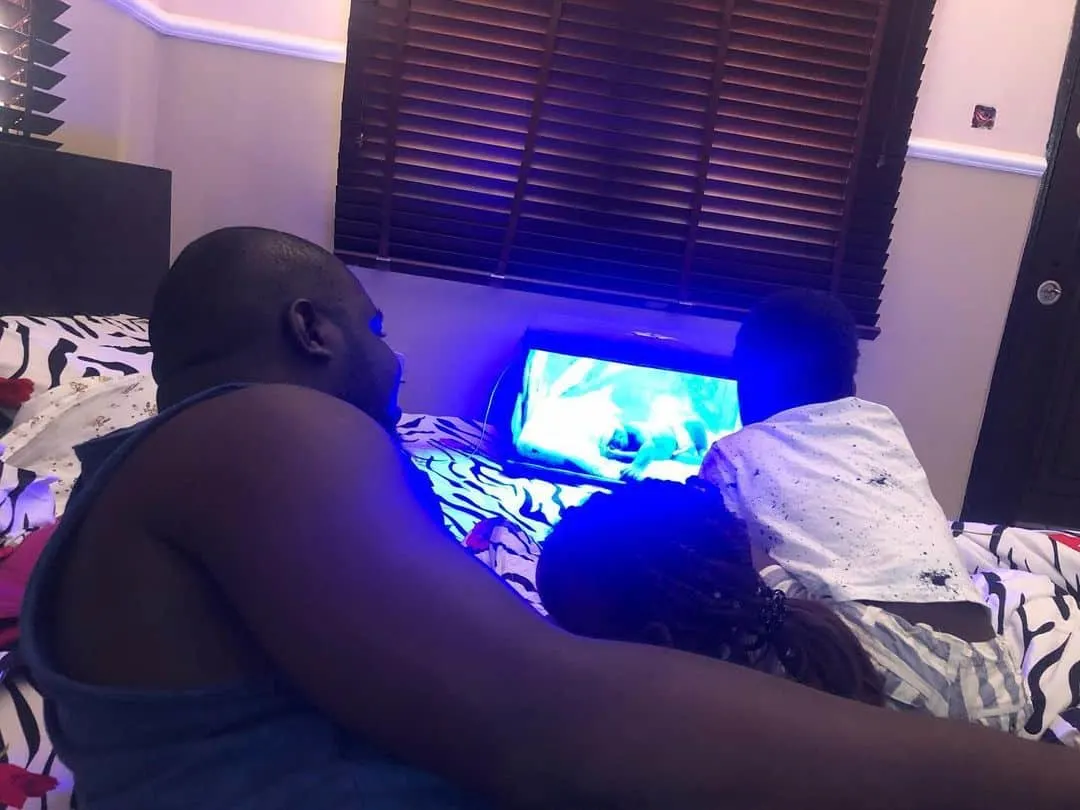Virtue Oboro gave birth to her son, Tombra, in 2015. Everything went well until 48 hours later, when her newborn had to undergo emergency treatment for jaundice.
The condition, caused by a build-up in the blood of a yellow compound called bilirubin, affects over 60% of newborns worldwide. Bilirubin is produced when red blood cells break down. It is usually removed by the liver, but the liver of newborns isn’t developed enough to do this effectively.
Most cases are mild and go away on their own, but more severe cases require phototherapy, where the babies are laid under blue light that helps make the bilirubin easier for the liver to break down.
It’s an easy and effective treatment, but it could be difficult to get in some places, including Oboro’s hometown of Nigeria.
Not getting treatment could lead to irreversible health issues, including vision impairment, hearing loss, cerebral palsy, and brain damage. In rare cases, jaundice can lead to death.
Tombra’s case was serious, but there were no phototherapy units available at the time. His family had to wait four hours while the poor baby’s condition worsened.
Eventually, Tombra was given an emergency blood transfusion—a risky surgery that bought him much-needed time until a phototherapy unit became available.
Oboro said she had to buy the bulb herself. There were also power outages at the time, which meant the unit was off for several hours during the newborn’s seven-day treatment.
Her son, now six, made a full recovery despite the numerous hurdles. However, she said the experience was traumatizing, compelling her to shift careers.
Oboro wanted to save babies from jaundice, so she created the Crib A’glow—a portable and affordable solar-powered phototherapy unit that treats jaundice with blue LED lights.
“I felt like some of the things (I experienced) could have been avoided, or the stress level could be reduced,” she said. “I thought, is there something I could do to make the pain less for the babies and the mothers?”
Shortly after Tombra’s recovery, Oboro founded her company, Tiny Hearts, in 2016 and began developing the life-saving solar-powered phototherapy units.
A visual designer, Oboro said she struggled with the medical technicalities. Luckily, her husband had experience working with solar energy and was ready to help. Oboro also worked with a pediatrician to ensure the device was safe and up to current phototherapy guidelines.
According to neonatal specialist Hippolite Amadi, one of the most effective phototherapy units currently used in Oboro’s country costs around $2,000, which is quite expensive for hospitals on a budget.
But Crib A’glow—manufactured in Nigeria using local materials—retails for only $360 per unit. The company can sell it at a low cost because local production allows them to save on added fees such as import tax.
The solar-powered phototherapy units are portable and solar powered, so even families with limited or inconsistent electricity can use them at home.
“Seeing devices coming out that will solve that problem is very exciting,” Amadi said.
The professor said that innovations like Crib A’glow can be used in tandem with traditional phototherapy machines, allowing babies to start their jaundice treatment in a hospital and finish at the comfort of their homes.
“Such technology needs to be supported and production scaled up to tackle neonatal conditions in Nigeria,” Amadi added.
Due to its brilliant design, Crib A’glow has received award grants, including $50,000 from Johnson and Johnson’s Africa Innovation Award. Most recently, the device was chosen as a finalist for this year’s Royal Academy of Engineering’s Africa Prize.
The cribs are already being used by over 500 hospitals across Ghana and Nigeria and have treated more than 300,000 babies. Tiny Hearts hopes to expand into other countries in sub-Saharan Africa.
The demand for solar-powered Crib A’glows soared during the COVID-19 pandemic, with many parents wanting to avoid hospitals and look after their babies at home. Currently, the team is working on protective eyewear to blindfold the little ones during phototherapy.
Oboro, who feels grateful that Tombra survived the ordeal, is now on a mission to “save a hundred and one more babies.”
***Did you enjoy our feel-good and positive story? You can help support our site by simply SUBSCRIBING and sharing our stories with your friends and family.
Discover more from My Positive Outlooks
Subscribe to get the latest posts to your email.





